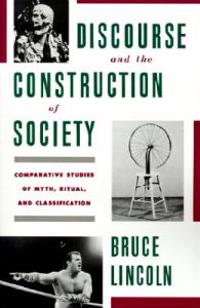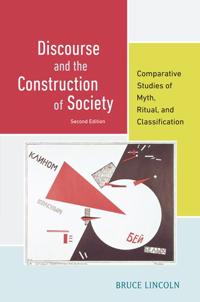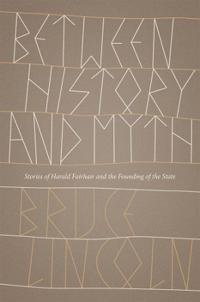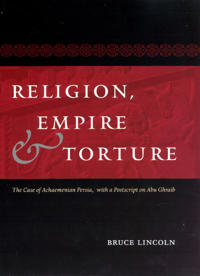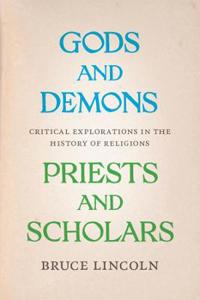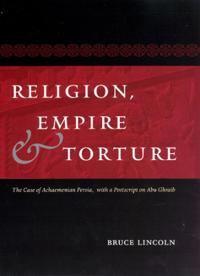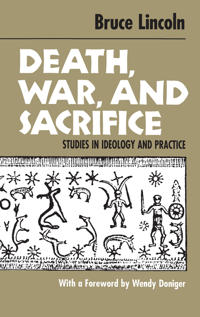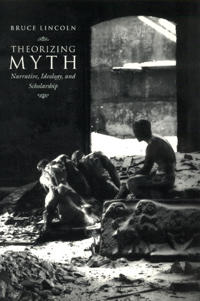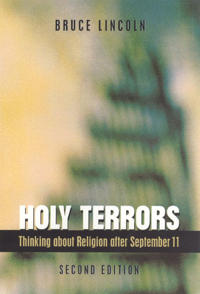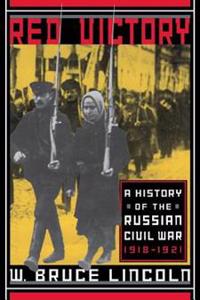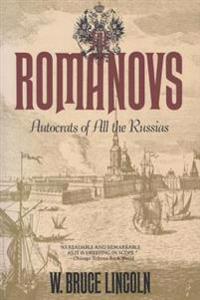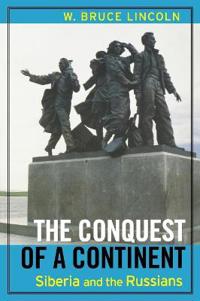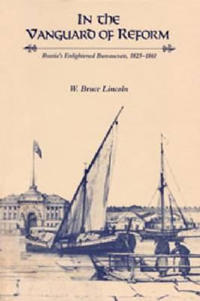Discourse and the Construction of Society: Comparative Studies of Myth, Ritual, and Classification (Häftad)
avBruce Lincoln
ISBN: 9780195079098 - UTGIVEN: 199211In this bold theoretical work, Bruce Lincoln explores the ways in which myth, ritual, and classification hold human societies together--and how, in times of crisis, they can be used to take a society apart and reconstruct it. Without overlooking the role of coercive force in the maintenance (or ove[...]
Discourse and the Construction of Society (Häftad)
avBruce Lincoln
ISBN: 9780199372362 - UTGIVEN: 2014-07Without overlooking the role of coercive force in the maintenance (or overthrow) of social structures, Lincoln argues his thesis with rich illustrations drawn from such diverse areas as Platonic philosophy, the Upanishads of India, ancient Celtic banquets, professional wrestling, and the Spanish Civ[...]
Between History and Myth (Inbunden)
avBruce Lincoln
ISBN: 9780226140926 - UTGIVEN: 2014-09All groups tell stories about their beginnings. Such tales are oft-repeated, finely wrought, and usually much beloved. Among those institutions most in need of an impressive creation account is the state: it's one of the primary ways states attempt to legitimate themselves. But such founding narrati[...]
Religion, Empire, and Torture (Pocket)
avBruce Lincoln
ISBN: 9780226251875 - UTGIVEN: 2014-10In Religion, Empire, and Torture, Bruce Lincoln identifies three core components of an imperial theology that have transhistorical and contemporary relevance: dualistic ethics, a theory of divine election, and a sense of salvific mission. He shows how these religious ideas shaped Achaemenian practic[...]
Gods and Demons, Priests and Scholars (Pocket)
avBruce Lincoln
ISBN: 9780226481876 - UTGIVEN: 201204Bruce Lincoln is one of the most prominent advocates within religious studies for an uncompromisingly critical approach to the phenomenon of religion-historians of religions, he believes, should resist the preferred narratives and self-understanding of religions themselves, especially when their sto[...]
Religion, Empire, and Torture (Inbunden)
avBruce Lincoln
ISBN: 9780226481968 - UTGIVEN: 200707How does religion stimulate and feed imperial ambitions and violence? Recently, this question has acquired new urgency, and in Religion, Empire, and Torture, Bruce Lincoln approaches the problem via a classic but little-studied case: Achaemenian Persia. Lincoln identifies three core components of an[...]
Authority (Inbunden)
avBruce Lincoln
ISBN: 9780226481975 - UTGIVEN: 1994-11What is authority? How is it constituted? How ought one understand the subtle (and sometimes not-so-subtle) relations between authority and coercion? Between authorized and subversive speech? In this analysis, Bruce Lincoln argues that authority is not an entity but an effect. More precisely, it is [...]
Death, War and Sacrifice (Häftad)
avBruce Lincoln
ISBN: 9780226482002 - UTGIVEN: 199106One of the world's leading specialists in Indo-European
religion and society, Bruce Lincoln expresses in these essays
his severe doubts about the existence of a much-hypothesized
prototypical Indo-European religion.
Written over fifteen years, the essays--six of them
previously unpub[...]Theorizing Myth (Häftad)
avBruce Lincoln
ISBN: 9780226482026 - UTGIVEN: 200004In "Theorizing Myth", Bruce Lincoln traces the way scholars and others have used the category of "myth" to fetishize or deride certain kinds of stories, usually those told by others. He begins by showing that "mythos" yielded to "logos" not as part of a (mythic) "Greek miracle", but as part of strug[...]
Holy Terrors (Pocket)
avBruce Lincoln
ISBN: 9780226482033 - UTGIVEN: 200606It is tempting to regard the perpetrators of the September 11th terrorist attacks as evil incarnate. But their motives, as Bruce Lincoln's acclaimed "Holy Terrors" makes clear, were profoundly and intensely religious. Thus what we need after the events of 9/11, Lincoln argues, is greater clarity abo[...]
Red Victory (Häftad)
avW.Bruce Lincoln
ISBN: 9780306809095 - UTGIVEN: 199904Shortly after withdrawing from World War I, Russia descended into a bitter civil war unprecedented for its savagery: epidemics, battles, mass executions, forced labor, and famine claimed millions of lives. From 1918 to 1921, through great cities and tiny villages, across untouched forests and vast [...]
The Romanovs: Autocrats of All the Russians (Häftad)
avW. Bruce Lincoln
ISBN: 9780385279086 - UTGIVEN: 198307For three centuries--beginning with the accession of Mikhail Feodorovich Romanov in 1613--the Romanov Dynasty ruled Russia. Its reign ended with the execution of Nicholas II and Alexandra in the early 20th century. Noted Russian scholar W. Bruce Lincoln has brilliantly portrayed the achievement, s[...]
The Conquest of a Continent (Häftad)
avBruce Lincoln
ISBN: 9780801489228 - UTGIVEN: 2004-06A sweeping narrative history of the Russians in Siberia, the land that was both a vast prison house and an open frontier.[...]
In the Vanguard of Reform (Pocket)
avBruce W. Lincoln
ISBN: 9780875805368 - UTGIVEN: 1986-10The first decade of Alexander II's reign is known in Russian history as the Era of the Great Reforms, a time recognized as the major period of social, economic, and institutional transformation between the reign of Peter the Great and the Revolution of 1905. Coming directly after the notoriously rep[...]

